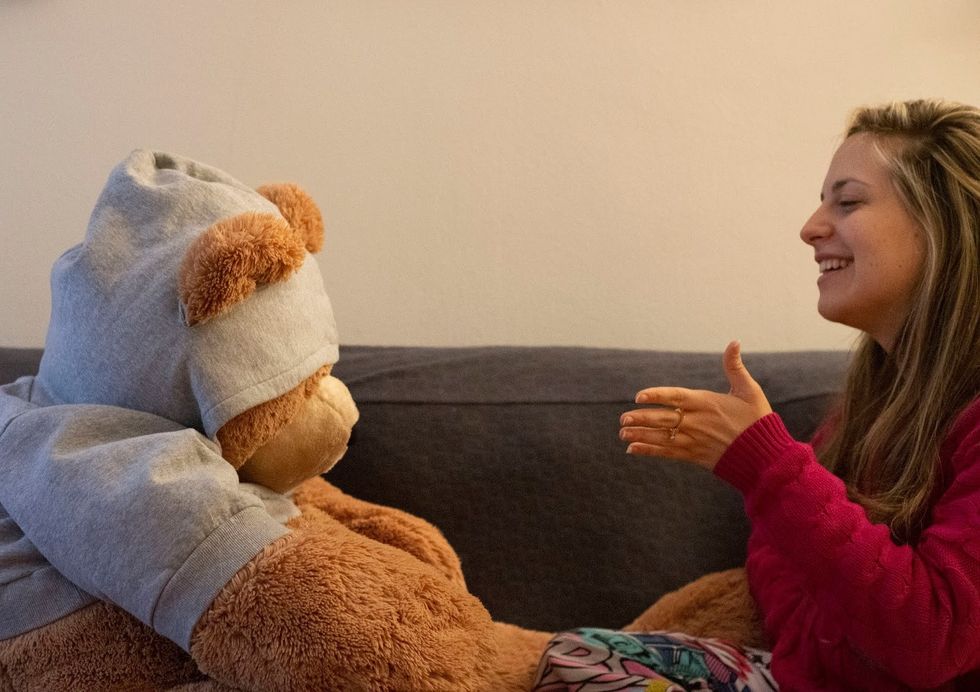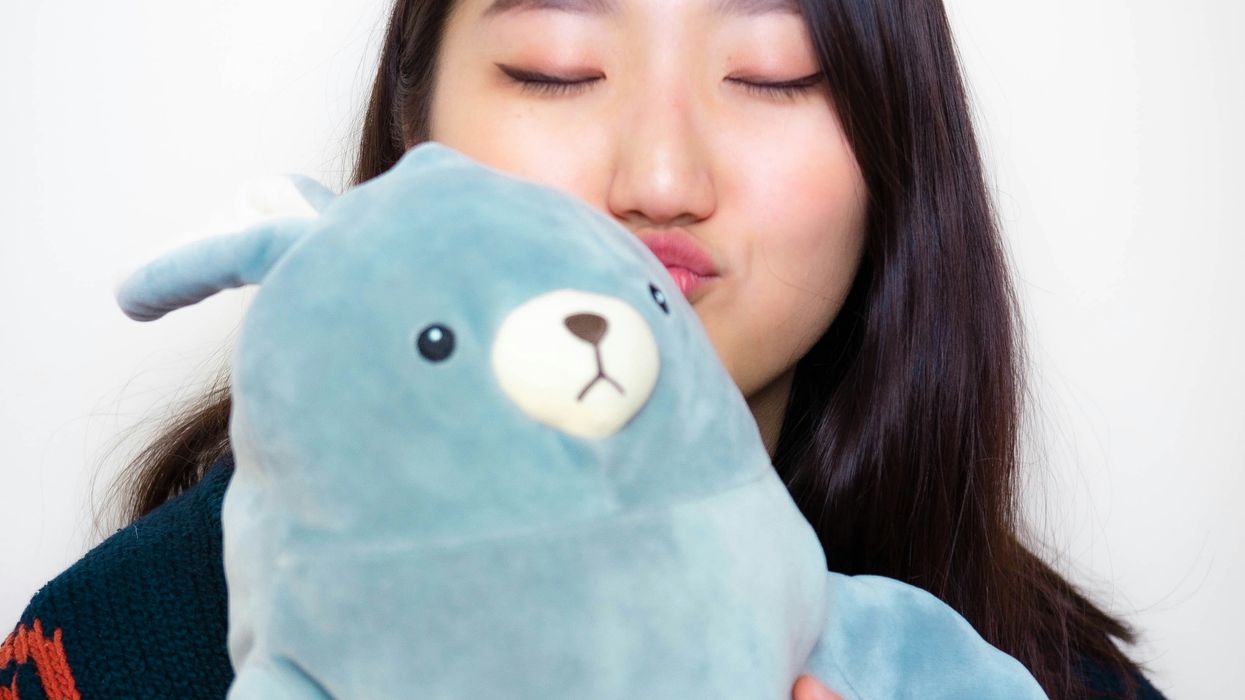Everybody has had a special furry someone in their lives, whether it was a bear, an otter, a wolf, a giraffe…you know, a stuffed animal to keep and hold dear. While we are often taught that this is something to abandon after childhood, new studies have shown that keeping a stuffed animal close as an adult is actually really good for your mental and physical wellbeing. Plus, it turns out sleeping with a stuffed animal as an adult can not only provide comfort and help assuage trauma, it can also ease anxiety and stress.
It turns out there's a positive psychological response to having a cozy, fluffy friend that can offer a feeling of closeness. This response can be generated by traditional stuffed animals or even weighted stuffed animals, which can duplicate the feeling of being held. Stuffed animals can also help ease past childhood memories when owners care for their creatures, in turn offering the love they perhaps didn’t know as children, CNN shares. As Rolling Stone also reports, “Doctors and therapists have been using weighted teddy bears for years to help patients deal with grief and loss.”
My best friend once told me about how, on a trip home from Mexico, she found herself running for the airport gate with a mountain of Squishmallows under her arm. She has a tower of them on a couch in her apartment, but she still found a few new friends on her travels she wanted to take home. When she told the story, I remember her saying that if being an adult means you can’t buy all the Squishmallows you want, then what’s the point? I myself have lived with a giant four-foot tall bear named Randolph for over a decade. Given to me by parents, he chills nonchalantly on my couch, never paying a dime in rent. Still, there have been many times I’ve cuddled up to him when I’m sad, just to feel a hug.
Neither of us are alone. There’s also been an uptick in adults purchasing stuffed animals for themselves in the last few years as well. In an interview with CNN, sleep psychologist Dr. Jade Wu wondered if it’s part of a process where “people are seeking more comfort in the face of uncertainty,” remembering with stuffed creatures the comforts of a simpler time amidst the precariousness of current events.

“This is one of the ways to self soothe,” Dr. Barbara Greenberg also told CNN. “We take something like an animal into our bed; it’s comforting.” Additionally, according to The School of Life, psychoanalyst Donald Winnicott surmised that “mental well being depends on…a repertoire of more gentle, forgiving and hopeful inner voices to keep going. It's this kind of indispensable, benevolent voice that the child first starts to rehearse and exercise with the help of a stuffed animal.” When stuffed animals teach us to self-soothe as children, this can become something we take throughout our lives and revisit.
So, the next time you spy a Squishmallow you want, or even a Randolph of your own, remember that as an adult it is okay to seek the comforts you sought out as a child. It’s even good for your health. The inner child is always there, and sometimes a hug from their favorite creature can help them start to feel better.
"It's this kind of indispensable, benevolent voice that the child first starts to rehearse and exercise with the help of a stuffed animal." The School of Life, www.youtube.com



















 Amoxicillin is a commonly prescribed broad-spectrum antibiotic.
Amoxicillin is a commonly prescribed broad-spectrum antibiotic.  Chart: The Conversation, CC-BY-ND
Chart: The Conversation, CC-BY-ND
 Counterintuitively, social media can make you feel more bored and lonely.
Counterintuitively, social media can make you feel more bored and lonely. Talking about what you’ve read can add a social dimension to what can be a solitary activity.
Talking about what you’ve read can add a social dimension to what can be a solitary activity. 
 Women and people of color who experience cardiac arrest are less likely to receive CPR.
Women and people of color who experience cardiac arrest are less likely to receive CPR.

 Mushrooms containing psilocybin.Photo credit:
Mushrooms containing psilocybin.Photo credit:  Woman undergoing cancer treatments looks out the window.Photo credit:
Woman undergoing cancer treatments looks out the window.Photo credit:  Friend and patient on a walk.Photo credit:
Friend and patient on a walk.Photo credit: 
